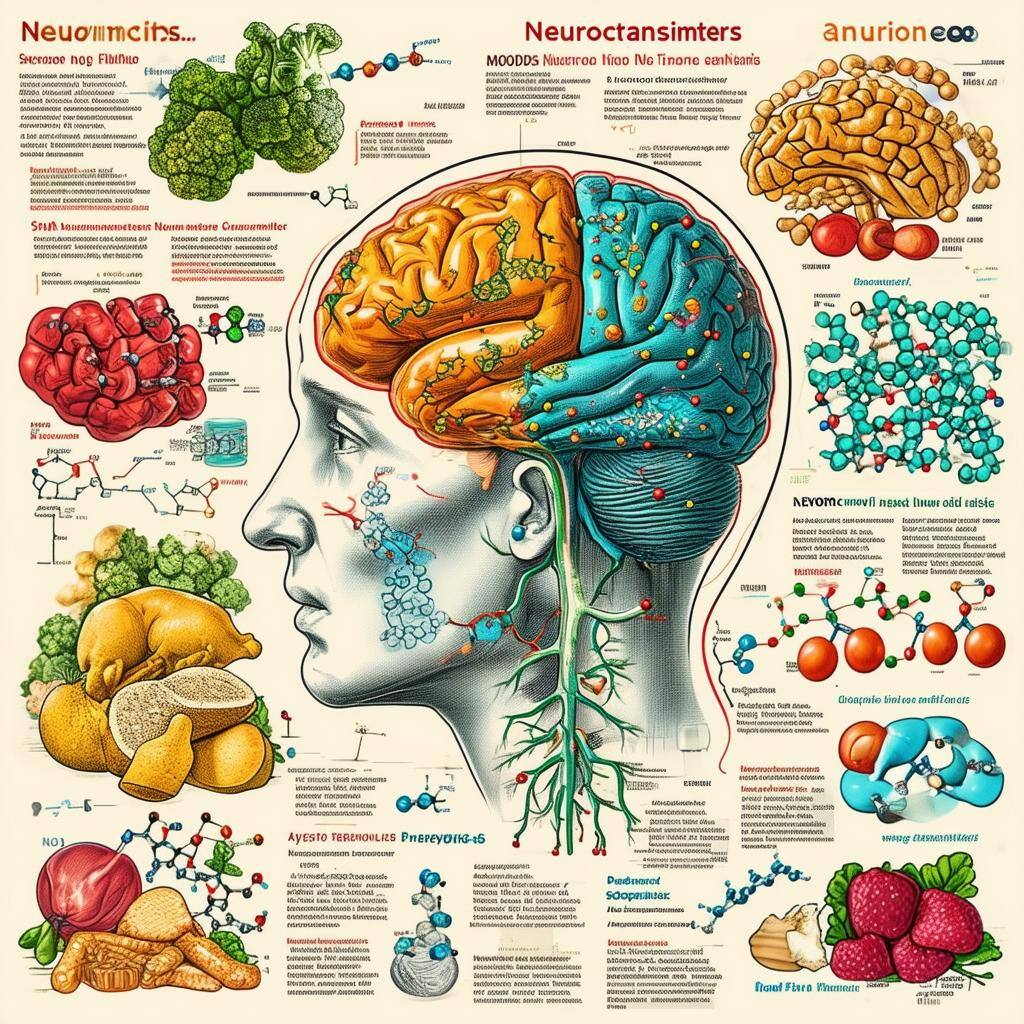Improving Mental Health Through Neurotransmitter Testing
Mental health is an essential aspect of overall well-being. Many people struggle with anxiety, depression, and other mental health issues. Often, these problems are linked to imbalances in neurotransmitters, which are chemicals that transmit signals in the brain. Understanding and addressing these imbalances can lead to better mental health and improved quality of life.
Neurotransmitters like serotonin, dopamine, and GABA play key roles in regulating mood, energy, and focus. When these chemicals are out of balance, mental health can suffer. Symptoms might include persistent sadness, anxiety, irritability, and difficulty concentrating. Identifying neurotransmitter imbalances through specialized testing can be the first step in addressing these symptoms effectively.
With advanced neurotransmitter testing, you can get a clear picture of what’s happening in your brain. These tests help pinpoint specific imbalances, allowing for personalized treatment plans. Instead of relying on medications that may cover up symptoms, this approach aims to correct the underlying issues naturally. It is important to find a functional medicine doctor who focuses on finding and fixing the core root cause of these symptoms to help you heal.
The Role of Neurotransmitters in Mental Health
Neurotransmitters are chemicals that transmit signals between nerve cells in the brain. These signals affect various functions, including mood, sleep, and focus. The balance of neurotransmitters like serotonin, dopamine, and GABA is crucial for maintaining mental health.
- Serotonin: Known as the "feel-good" neurotransmitter, serotonin helps regulate mood, appetite, and sleep. Low levels are often linked to depression and anxiety.
- Dopamine: This neurotransmitter plays a role in pleasure, motivation, and reward. Imbalances can lead to issues like anxiety, depression, and attention disorders.
- GABA (Gamma-Aminobutyric Acid): GABA serves as the brain's primary inhibitory neurotransmitter. It helps calm the nervous system. Low GABA levels are associated with increased anxiety and stress.
When these neurotransmitters are out of balance, mental health suffers. Understanding the role of each neurotransmitter can provide valuable insights into how they affect mood and behavior. Recognizing these roles highlights the importance of maintaining their balance for overall mental well-being.
Common Symptoms Indicating Neurotransmitter Imbalances
Neurotransmitter imbalances can manifest through various symptoms affecting both mental and physical health. Recognizing these signs can help in seeking appropriate treatment.
Emotional Symptoms:
- Persistent Sadness: Long-term feelings of sadness or depression may point to low serotonin levels.
- Anxiety and Irritability: Imbalanced GABA or low dopamine can lead to heightened anxiety and irritability.
- Lack of Motivation: Dopamine deficiency often results in reduced motivation and pleasure in daily activities.
Physical Symptoms:
- Sleep Disturbances: Difficulty falling or staying asleep can be linked to serotonin or GABA imbalances.
- Fatigue: Chronic tiredness, even after a full night's sleep, might indicate neurotransmitter issues.
- Digestive Problems: Neurotransmitters also play a role in gut health. Imbalances can cause digestive discomfort.
Cognitive Symptoms:
- Difficulty Concentrating: Trouble focusing or brain fog may signal low levels of dopamine.
- Memory Issues: Forgetfulness and short-term memory lapse can be linked to neurotransmitter imbalances.
Recognizing these symptoms is the first step toward addressing them. It is important to find a functional medicine doctor who focuses on finding and fixing the core root cause of these symptoms to help you heal. By identifying and treating neurotransmitter imbalances, you can improve your mental and physical health.
Advanced Neurotransmitter Testing Methods
Understanding neurotransmitter imbalances requires precise testing. Advanced methods offer detailed insights into your brain chemistry and help tailor effective treatment plans.
Types of Tests:
- Urine Tests: These tests measure the levels of neurotransmitter byproducts excreted in urine. They provide a broad overview of neurotransmitter activity in the body.
- Blood Tests: Blood tests measure neurotransmitter levels directly. This method is more specific and can identify imbalances with greater accuracy.
- Saliva Tests: Saliva tests are less common but useful for measuring certain neurotransmitters related to stress and adrenal function, such as cortisol.
Benefits of Advanced Testing:
- Personalized Treatments: Results from these tests allow for creating personalized treatment plans tailored to your specific needs.
- Early Detection: Detect imbalances before they lead to severe mental health issues, enabling early intervention.
- Holistic Approach: These tests consider overall health, including hormone levels and gut health, to provide a comprehensive view.
Interpreting Results:
- Consult with Experts: Work with a functional medicine doctor to understand your results and develop an effective plan.
- Ongoing Monitoring: Regular follow-up tests ensure the treatment plan remains effective and adjustments can be made as needed.
Advanced neurotransmitter testing is essential for pinpointing imbalances and tailoring treatments that promote mental well-being.
Holistic Approaches to Balance Neurotransmitters
Balancing neurotransmitters naturally can improve mental health. Holistic approaches focus on diet, supplements, lifestyle changes, and stress management.
Dietary Adjustments:
- Foods Rich in Amino Acids: Protein-rich foods such as chicken, fish, nuts, and seeds boost serotonin and dopamine levels.
- Balanced Diet: Include fruits, vegetables, whole grains, and healthy fats to support overall brain health.
Herbal Supplements:
- Adaptogens: Herbs like ashwagandha and rhodiola can help balance stress hormones and improve mood.
- Bioidentical Hormones: These help restore hormonal balance naturally, which in turn can improve neurotransmitter functions.
Lifestyle Changes:
- Exercise: Regular physical activity increases dopamine and serotonin levels, reducing stress and improving mood.
- Sleep: Quality sleep is vital for neurotransmitter production and balance. Aim for 7-9 hours per night.
Stress Management Techniques:
- Mindfulness Practices: Engage in yoga, meditation, and deep breathing exercises to reduce stress and promote relaxation.
- Social Connections: Maintain healthy relationships to support emotional well-being and balance neurotransmitters.
Combining these holistic methods can create a balanced life, leading to improved mental health.
Conclusion
Enhancing mental health through neurotransmitter testing offers a clear path to understanding and treating imbalances. These vital chemicals control mood, energy, and focus, and their proper balance is essential for well-being. Recognizing common symptoms of imbalances can prompt timely testing and treatment.
Advanced testing methods such as urine, blood, and saliva tests provide detailed insights. These tests enable the development of personalized treatment plans that address specific needs. Holistic approaches, including dietary changes, herbal supplements, and lifestyle adjustments, naturally balance neurotransmitters and improve mental health.
A comprehensive and integrated approach to managing neurotransmitter levels helps achieve long-term wellness. It is important to find a functional medicine doctor who focuses on finding and fixing the core root cause of these symptoms to help you heal.
At Infinity Wellness, located in Waxahachie, TX, we specialize in holistic, root-cause care tailored to your unique health journey. Serving both local and nationwide patients through in-person and virtual services, we offer comprehensive programs to address conditions such as hormonal imbalances, chronic fatigue, and digestive issues. Our goal is to help you achieve long-term wellness and vitality.
Ready to transform your health? Book an appointment here - Our Holistic Approach to Wellness - Infinity Wellness Center.



